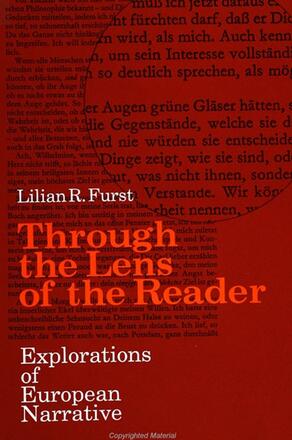
Through the Lens of the Reader
Explorations of European Narrative
Alternative formats available from:
Description
Through the Lens of the Reader is a sequence of ten essays exploring European narrative from the eighteenth to the twentieth century. It covers a wide spectrum of authors ranging from Goethe through Balzac, Flaubert, Zola, George Eliot, Henry James to Rilke, Thomas Mann, and Kafka. The essays are unified by a particular mode of reading, in which the lens of the reader becomes the filter through which texts are constructed in accordance with the signals emitted by their narrational and linguistic strategies.
Lilian R. Furst is Marcel Bataillon Professor of Comparative Literature at the University of North Carolina at Chapel Hill.
Reviews
"By juxtaposing paradigmatic texts Furst succeeds in shedding new light with surprising insights. Intellectually important is her focus on ironic discourse along with the close attention she pays to the shifting of perspectives from the narrator to his characters and the reader. She masters the art of close reading as few scholars do nowadays without being tempted to construct a text of their own. It is a thrill for this reader to see with how much ingenuity she negotiates various challenges of her text.
"I like her no-nonsense approach as much as her selection of paradigmatic texts and her well-rounded presentation of the material linked by the metaphor of 'the lens' and'green glasses' as well as the return to the same texts in different contexts. Everything is superbly argued and written. Furst's scholarship is impeccable, and is well versed in the latest debate on methodology (Barthes, Lacan, Bakhtin). " — Gerhart Hoffmeister